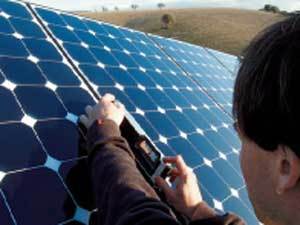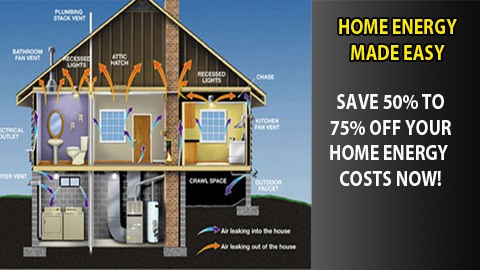
“Solar power, wind power, the way forward is to collaborate with nature - it's the only way we are going to get to the other end of the 21st century. ”
Bjork

Passive Solar Water Heater
A solar hot water heater, also known as solar domestic hot water system, can be an inexpensive option to create hot water for your home. It may be utilized in any environment, and the fuel they use is free: sunlight.
Sun collectors and storage tanks are vital parts of a solar hot water heater. Solar water heating systems are classified as either active or passive. Active solar water heating systems are equipped with circulating pumps and controllers, while passive systems are not.
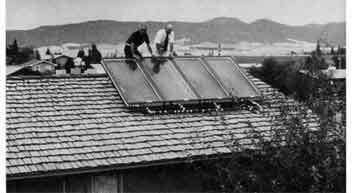
Types of Solar Water Heaters
As mentioned, an active solar water heater is equipped with controllers and circulating pumps, which a passive solar water heater doesn’t have.
A passive solar water heating system is typically less expensive than active systems. However they tend to be less efficient. Passive systems, on the other hand, can be more reliable and longer lasting. Passive systems are grouped under two types:
Integral Collector-Storage
This is made out of a storage tank that is covered in a transparent covering that allows the sun to heat the water. The water then gets into the plumbing system. These are most effective in locations where temperatures rarely drop below freezing point. They also operate effectively in households with high hot-water demands during the day and night.
Thermosyphon System
When a hot water faucet is turned on, water is heated in a collector on the roof and then circulated through the plumbing system. Most of these systems have a capacity of 40 gallons.
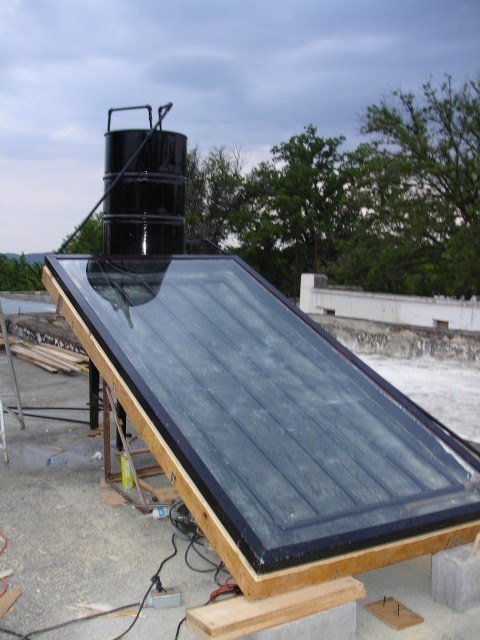
DIY Solar Water Heater
The integral passive solar water heater (or IPSWH, pronounced as ips-wah) is a DIYer’s dream. It is a low-cost, simple-to-build DIY solar water heater. All you need to make this contraption is an old electric water heater tank, an insulated plywood box to house the tank, a sheet or two of used window glass or clear plastic, a few basic plumbing fittings, some pipes, and some insulation.
Add a few hours of measuring, thinking, sawing, hammering, painting, and wrench-turning, you'll have a constant supply of hot water delivered nearly free of charge by that friendly furnace in the sky (the only safe nuclear reactor, 93,000,000 miles away).
Solar Water Heater Tank
A well-insulated solar water heater tank is required for the majority of solar water heaters. In solar storage tanks, an extra outlet and inlet are connected to and from the collector. The heater preheats water before reaching the traditional water heater in two-tank systems. The backup heater and solar storage are merged in the tank in one-tank systems.
Three types of solar collectors are used in residential applications.
Flat-Plate Collector
Glazed flat-plate collectors are weatherproofed, insulated boxes with a dark absorber plate hidden beneath one or more glass or plastic (polymer) covers. Unglazed flat-plate collectors, which are commonly used for solar pool heating, have a dark absorber plate composed of metal or polymer that is not covered or enclosed.
Integral Collector-Storage System (ICS)
Also known as batch systems, ICS consists of one or more black tanks or tubes housed in an insulated, glazed box. Passing cold water through the solar collector warms it up. The water is then directed to a typical backup water heater, which produces a steady stream of hot water. They should only be put in mild-freeze climates because exterior pipes can freeze in extreme temperatures.
Evacuated-Tube Solar Collector
The collector is composed of parallel rows of translucent glass tubes. Each tube is composed of a glass outer tube and metal absorber tube connected to a fin. The fin's covering absorbs solar energy while minimizing radiative heat loss. These collectors are increasingly being employed in commercial applications in the United States.
A solar power hot water heater nearly always necessitates a backup system for cloudy days and peak demand. Traditional storage water heaters are often used as a backup and are sometimes incorporated in the bundle. The solar collector may also include a backup system, such as rooftop tanks equipped with thermosyphon devices. Because an integral-collector storage system already stores hot water while collecting solar heat, it can be used with a tankless or demand-type water heater for backup.
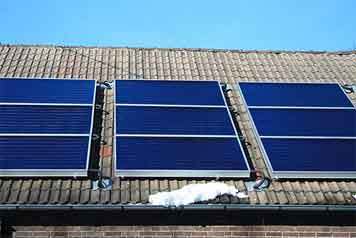
Solar Water Heater Cost
The average cost of installing a solar water heater (including parts and labor) is $3,532, with prices ranging from $1,687 to $5,402. This is a bigger investment than a standard system.
Solar Water Heater Cost in Different Sizes?
The size of your system is determined by how much warm water you use on a regular basis. Do you have several people in your home who take multiple showers every day? Is it simply the two of you sharing a bathroom?
The greater the number of people and water sources in your home, the larger each component of your system will be. The primary components are as follows:
- Solar collectors (also known as solar panels) to gather solar energy.
- Tank for collecting hot water
- Plumbing to connect the system to your home.
The collector's style also has an effect in your final price tag.
The main components of your solar power hot water heater will cost between $1,000 and $4,000. Add $1,000 to $2,500 for additional plumbing, system control switches or backup heaters. The quantity of solar panels, which cost between $800 and $1,500 each, also has a factor.
Finally, labor costs—a considerable portion of the estimate—must be calculated. Installing a solar water heater costs an average of $70 per hour. While most installations take a few days, the number of hours required depends on:
- The dimensions of your system
- Your house's size
- Temperatures and intensities of sunlight in your area
- Positioning of your solar collectors (it takes more time to install them on a roof)
The basic components for your solar water heater system will cost between $1,000 and $4,000. Add $1,000 to $2,500 for additional pipes, backup heaters, or switches to regulate the system. The amount of solar panels, which range in price from $800 to $1,500 per, also plays a factor.
Finally, you'll need to consider labor costs, which will account for a sizable portion of your solar water heater cost estimate. The average hourly charge for installing a solar water heater is $70.
Conclusion
Thus, by knowing a few facts about solar water heating you can easily decide about building a solar water heater is right for you.



